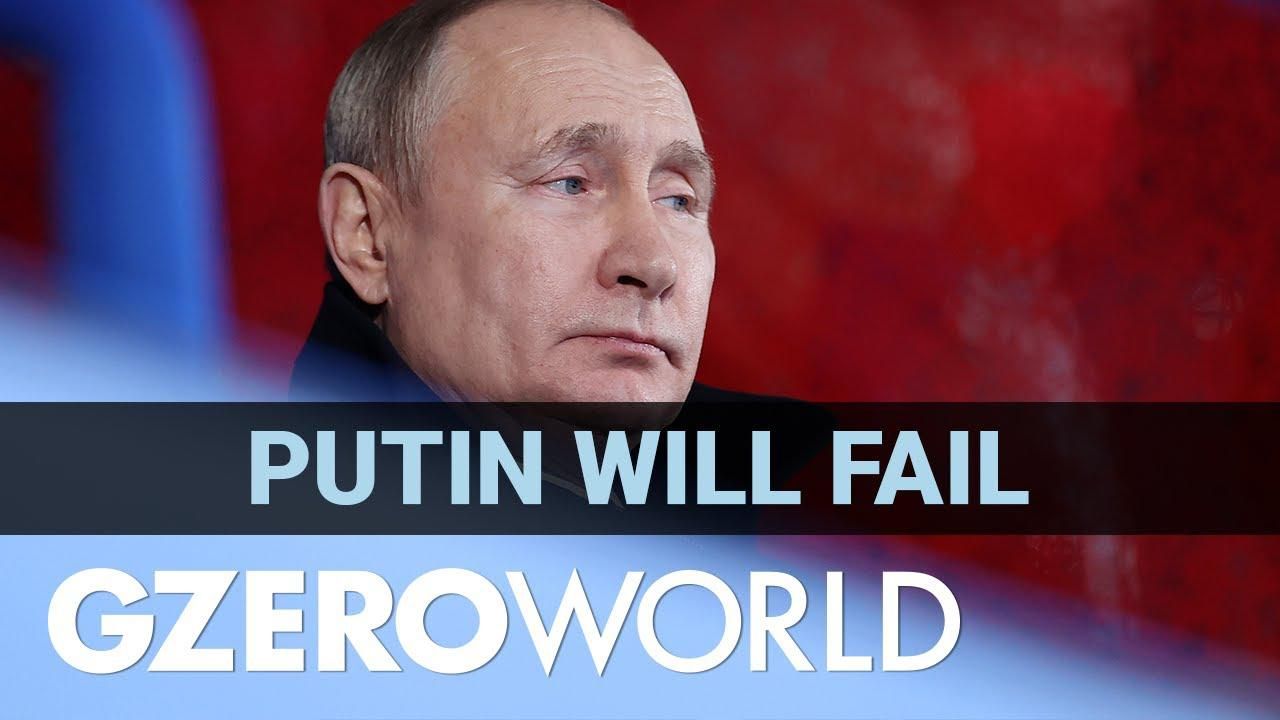GZERO World with Ian Bremmer
Putin's Europe Problem

Putin Past the Point of No Return | Finland's Former PM Alexander Stubb | GZERO World

We're proud to announce that GZERO has won the Silver Telly Award for general political commentary for this episode of GZERO World with Ian Bremmer (which was originally published online March 21, 2022.)
The West is already at war with Russia.
NATO boots may not be on the ground, but the US and its allies are helping Ukraine with arms and cash, and by upping the pressure on Moscow with tough sanctions. Vladimir Putin knows this, but he's fighting a 20th-century war in 2022 — and losing on global PR and social media.
Meanwhile, the ripple effects of the conflict are spreading well beyond Ukraine's borders. And one country watching very closely is Finland.
On this episode of GZERO World, Ian Bremmer talks to former Finnish PM Alexander Stubb, who explains why his country has gone from longtime neutral actor to NATO hopeful.
Stubb — who once helped broker Russia's 2008 cease-fire with Georgia — believes Putin has backed himself into a corner and won't back down on Ukraine. He also thinks we shouldn't overestimate China's appetite to deal with an increasingly isolated Russia: at the end of the day Beijing doesn't want to be Moscow's mule.
Bonus: a tale of two train stations in Berlin and Kyiv.
Prime Minister Narendra Modi, with President of the European Council António Luís Santos da Costa, and President of the European Commission Ursula von der Leyen, at Hyderabad House, in New Delhi, India, on Jan. 27, 2026.
On Tuesday, the world’s largest single market and the world’s most populous country cinched a deal that will slash or reduce tariffs on the vast majority of the products they trade.
Canadian Prime Minister Mark Carney has repeatedly tussled with US President Donald Trump, whereas Mexican President Claudia Sheinbaum has tried to placate him. The discrepancy raises questions about the best way to approach the US leader.
10,000: The number of Hamas officers that the militant group reportedly wants to incorporate into the US-backed Palestinian administration for Gaza, in the form of a police force.
Walmart is investing $350 billion in US manufacturing. Over two-thirds of the products Walmart buys are made, grown, or assembled in America, like healthy dried fruit from The Ugly Co. The sustainable fruit is sourced directly from fourth-generation farmers in Farmersville, California, and delivered to your neighborhood Walmart shelves. Discover how Walmart's investment is supporting communities and fueling jobs across the nation.